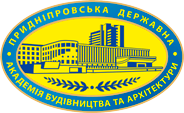Scientific profile

Candidate of Technical Science (21.06.01 – ecological safety, 2015)
Associate Professor (2019)
Nataliia
TKACH
Contacts and CV
Research
Current research
State Scientific Theme No 0121U107480 “Scientific foundations of ensuring the ecological safety for technogenically burdened urban ecosystems” (for 2021-2023), Contribution – “Development of a methodology for assessing socio-economic damage due to noise pollution in populated cities”, Function – team member.
More
Past research
State Scientific Theme No 0116U004746 “Ecological monitoring of components of technologically loading urban ecosystems” (for 2016-2020), Contribution – “Technosphere safety of the region”, Function – team member.
More
Expertise Summary
Ensuring the safety and protection of the population from the man-made impact of road transport, qualitative assessment of noise pollution from motor vehicles taking into account the ecological effectiveness of noise protection measures depending on the time of day and urban planning situation, assessment of the annual economic result from the use of noise protection, road noise mapping, assessment of socio-economic damage due to noise pollution of man-made urban ecosystems.
Publications
1. Sankov, P., Trifonov, I., Tkach, N., Hilov, V., Bakharev, V., Tretyakov, O., & Nesterenko, S. (2017). Development of the method of evaluation of the level of environmental safety of housing accommodation and its approbation. Eastern-European Journal of Enterprise Technologies, 4/10 (88), 61–69. (https://doi.org/10.15587/1729-4061.2017.108443)
2. Sankov, P., Tkach, N., Dikarev, K., Blyzniuk, A., Hvadzhaia, B. (2018). Effect of motor transport on the working places in the service infrastructure (by noise factor and urban air pollution in the city center of Dnipro). Science and Innovation, 14(3), 59–66. (https://doi.org/10.15407/scine14.03.059)
3. Zakharov, Y., Sankov, P., Trifonov, I., Tkach, N., Toshyna, L. (2019). The content and specific features of reconstructing the residential houses of various configurations. Science and Innovation, 15(3), 79–90. (https://doi.org/10.15407/scine15.03.079)
4. Sankov, P., Dikarev, K., Kushnir, Y., Tkach, N. (2020). Modern Smart City Concept Considering Population Safety Issues. Lecture Notes in Civil Engineering, 73, 225–234. (https://doi.org/10.1007/978-3-030-42939-3_24)
5. Гільов В.В., Саньков П.М., Полторацька В.М., Ткач Н.О. Дослідження рівня шумового забруднення від автотранспорту на автомобільних дорогах Дніпропетровської області (Study of the level of noise pollution from motor vehicles on the roads of the Dnipropetrovs’k region). Екологічні науки (Ecological sciences). 2022. № 2(41). С. 52-55 (https://doi.org/10.32846/2306-9716/2022.eco.2-41.9)
Monograph
Hilov V. Tkach N., Poltoratska V., Troshуn M., Voloshko V. Acoustic safety as an integral part of the assessment of the quality and life safety of the population of urban area. Scientific foundations of modern engineering: Monography – Іnternational Science Group. – ISBN: 978-1-64871-656-0 – Boston: Primedia eLaunch, 2020. P. 215-219 (https://doi.org/10.46299/isg.2020.MONO.TECH.I)
Courses
1. Human ecology
Relationship between nature and society; the dynamics of the impact on the human community of cosmic, planetary, and local natural phenomena and processes; the biochemistry of the human body; the possibilities of self-diagnosis, recovery, adaptation to stressogenic factors; the general ecological and demographic state of humanity; modern human spirituality and personality psychology.
2. Strategic environmental assessment
Procedure of strategic environmental assessment, namely the definition, description and assessment of the consequences of the implementation of state planning documents for the environment, including for the health of the population, justified alternatives, the development of measures to prevent, reduce and mitigate possible negative consequences.
3. Physics and chemistry of the environment
Essence of many physical and chemical processes occurring in the environment; determining the impact of physical and chemical factors on ecological processes, the state of the environment; processes of transformation and migration of chemical compounds of natural and anthropogenic origin in the lithosphere, hydrosphere and atmosphere.
4. Fundamentals of environmental toxicology
Patterns, forms and ways of influence of natural and anthropogenic toxins on all levels of the organization of living matter; assessing the harmful effects of toxic substances on a living organism, and identifying patterns of manifestation of toxic effects; establishing connections between the molecular structure of a toxicant and its biological after-effect.
5. Scientific experiment planning
Planning scientific experiments and statistical processing of the results of natural and analytical studies of the state of the environment; basic principles in organizing the collection, processing of data and interpretation of the obtained results; main stages of conducting experimental research; methods of scientific research.
6. Sustainable development strategy
Strategic aspects of the relationship between man and the environment; principles and the general characteristics of the concept of sustainable development for Ukraine; the main directions and priorities of ensuring sustainable development taking into account national interests.
7. Environmental aspects of reconstruction, preparation and landscaping of the urban environment
Basic provisions and principles of designing engineering improvement of residential areas; system of green areas of the city; sanitary landscaping of areas, basic principles and methods of reconstruction of residential areas in cities.
8. City planning acoustics
Methodology of processing the results of field measurements; analytical studies of the noise regime of the environment; the basic principles of noise protection in residential areas of cities; the main sources of noise in cities and the methods of organizing noise protection from these sources.
9. Ecoreconstruction of aquatic terrestrial ecosystems
Infrastructure system and engineering equipment of the residential, industrial, administrative and cultural sectors; basic principles and methods of development infrastructure systems and infrastructure development prospects; main environmental aspects and problems of infrastructure design in cities.
10. Evaluation of the level of environmental safety
Main provisions, principles and regulatory requirements regarding the procedure for assessing the level of environmental safety; determining the degree of environmental risk; safety of the planned activity; assessing the impact of the planned activity on the state of the environment, human health, to the reserves and quality of natural resources.
11. Information technologies in the environment
Application information and research complexes in ecology; basic provisions, principles and regulatory requirements regarding the use of information technologies in the processing of research results in the field of environmental protection; main methods of mathematical analysis of experimental research.
12. Parametric pollution
Characteristics of the parametric type of pollution; principles and regulatory requirements regarding heat, radiation, noise, electromagnetic pollution; the main ecological aspects and problems of protecting the environment and public health from parametric pollution in cities.
